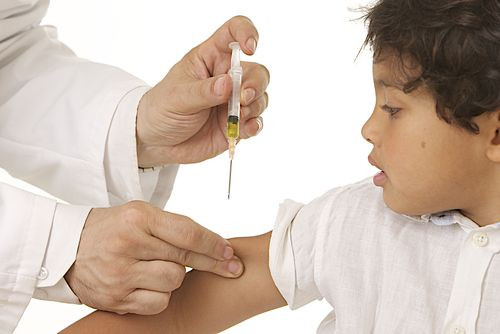A Back-To-School Vaccine Schedule, Decided By Your State, Prepares Your Child For The Herd Immunity Ahead

As kids return to school this week, parents around the country may have already begun their annual performance of the happy dance. However, one final duty must be attended to: vaccinations. Fathers and mothers need to make sure each of their children, whether a pre-schooler or an undergrad in college, is up-to-date with the state and school requirements for immunizations. After all, making sure children receive their vaccinations is one of the most important things parents can do to safeguard children’s long-term health as well as the health of all others in the community.
Although the Centers for Disease Control and Prevention (CDC) does not set the requirements, it has provided a variety of tools and resources to help you understand which shots are required before your child can enroll and attend child care facilities and schools in your state.
While the back-to-school rush may already be on, there’s no need to panic. Many pediatricians are prepared for a last-minute run, while local public health clinics and community health centers also stand at the ready to inoculate kids against disease. Public clinics also provide one way to reduce the costs of vaccinations, as in most cases children are qualified to receive inexpensive or free vaccines in situations where parents either do not carry insurance or their policy does not cover all expenses. Though the Affordable Care Act requires health insurance policies to cover the costs of any recommended vaccine, some insurance plans are not required to meet these rules.
The recommended vaccination schedule has been created by disease experts and doctors and it is re-evaluated each year based on the most recent scientific data. The final schedule is approved by the CDC, the American Academy of Pediatrics, and the American Academy of Family Physicians with any new additions or changes announced each January. Each vaccine dose is scheduled for the age when the body’s immune system will work the best and is balanced with the need to provide protection to children at the earliest possible age.
Although some vaccine-preventable diseases have become very rare — thanks to vaccines — an outbreak can still happen. In particular, the United States is experiencing a record number of measles cases, with 593 cases of measles reported between Jan. 1 and Aug. 1, 2014. Worse, between Jan. 1 and June 16, 2014, almost 10,000 cases of whooping cough have been reported to CDC, a significant 24 percent increase compared to the same period in 2013. While you may have heard a child can be vaccinated and still come down with a disease, vaccinated children are much more likely to have only mild illness compared to unvaccinated children.
Published by Medicaldaily.com



























